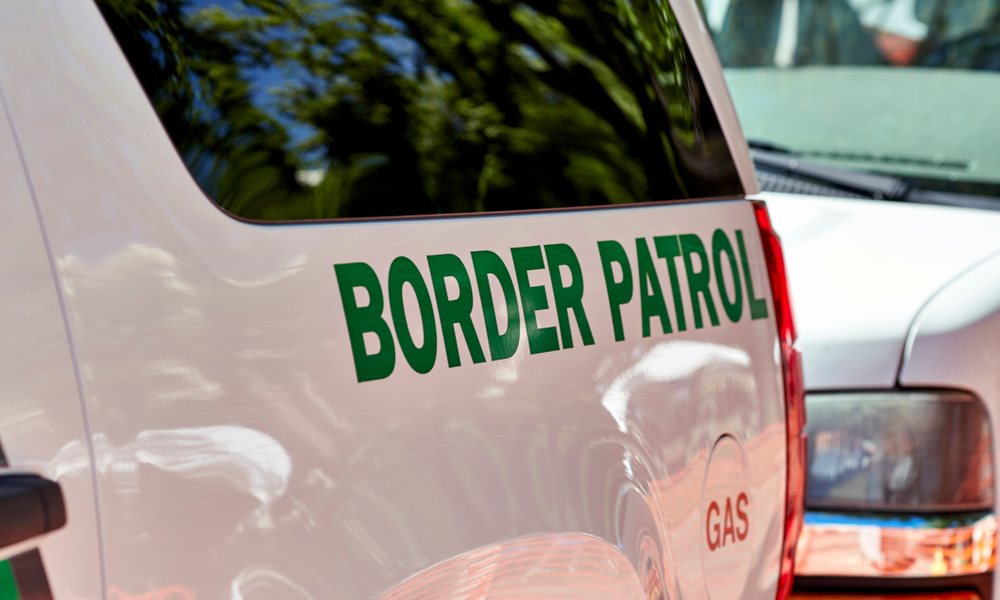U.S. CBP Agents Tried to Bully Apple Engineer Into Unlocking Company-Issued iPhone and MacBook
 Credit: Pamela Au / Shutterstock
Credit: Pamela Au / Shutterstock
Toggle Dark Mode
An Apple engineer has filed a civil rights complaint against the U.S. Customs and Border Protection (CBP) after he was detained by three agents who attempted to bully him into unlocking his Apple-issued iPhone and MacBook, denying his requests to speak with legal counsel.
In a post on Medium titled No one should have to travel in fear, Dr. Andreas Gal, a U.S. citizen who was the CTO for Mozilla and founder of machine-learning startup Silk Labs prior to joining Apple, describes how he was held up by three armed U.S. CBP agents when returning to the U.S. from a European business trip. Gal notes that he was using his Global Entry pass to re-enter the U.S. at San Francisco International Airport, when he was redirected by the automated kiosk to a CBP agent. Although this is something that’s done at random by the Global Entry and NEXUS kiosks in order to perform spot-checks on travellers, Gal noted that the agent kept his passport and sent him on to secondary inspection where he “quickly found [himself] surrounded by three armed agents wearing bullet proof vests.”
The agents proceeded to question Gal about his trip, his current employment, and his past work with Mozilla, and then searched his belongings and demanded that he unlock his iPhone XS and MacBook Pro — devices that, as The Washington Post reports, were both clearly labelled as “Confidential and Proprietary” property of Apple.
Gal notes that he didn’t actually refuse to unlock the devices, instead simply saying that he requested to speak to an attorney so that he could clarify his legal responsibilities. Like every other Apple employee, Gal is under a non-disclosure agreement. Since the devices in question were Apple’s property, Gal was naturally concerned about the legal ramifications. and he therefore wanted to speak with either his employer or an attorney before unlocking them.
Recounting the experience, Gal indicates that his request “seemed to aggravate the customs officers” who told him that he had “no right to speak to an attorney at the border,” despite the fact that he was a U.S. citizen. The agents also threatened Gal that if he failed to comply with their demand, he would be arrested under “federal criminal code 18 USC 111” — a statute involving “assaulting, resisting, or impeding” a U.S. government employee in the performance of their official duties.
I’m not an attorney, and I have no prior experience with federal law enforcement, but I did study the U.S. Constitution as part of my citizenship test three years ago. I wasn’t sure what the legal definition of an unreasonable search and seizure was, but three armed men detaining me, threatening me, and refusing to allow me to consult with an attorney definitely felt like one.
Dr. Andreas Gal, Apple Home Products engineer and former Mozilla CTO
At that point, Gal notes that he declined to answer any further questions, simply continuing to ask to speak to an attorney, but otherwise silently enduring the “interrogation and threats” which continued “for some time.” Although the agents initially threatened to keep Gal’s devices if he didn’t unlock them, he was ultimately permitted to leave the customs area with the devices in his possession. However, the agents did retain his Global Entry card, which Gal felt was “punishment for not complying with their demands.”
In an interview with The Washington Post, Gal noted that he was detained for about an hour, and when the agents finally released him, he was given a handwritten note with a supervisor’s name and phone number, and instructions to have his boss at Apple get in touch with them. Gal subsequently filed a complaint via the American Civil Liberties Union (ACLU) with the Office for Civil Right and Civil Liberties of the U.S. Department of Homeland Security, demanding an “investigation into whether CBP’s interrogation and search of Gal was consistent with the First and Fourth Amendments of the U.S. Constitution,” and accusing the CBP agents of “retaliation” against Gal in response to his simply “questioning the unwarranted search of his electronic devices.”
If the government intended to scare me, they certainly succeeded. Ever since, I travel in fear. I’ve reduced my international travel and my heart pounds every time I go through U.S. customs. I will, however, not be silent.
Dr. Andreas Gal, Apple Home Products engineer and former Mozilla CTO
Gal told the Post that he didn’t feel that his experience was random, but rather suspects that he was specifically targeted due to his previous work at Mozilla, where he very openly worked on projects regarding encryption and online privacy. Gal also notes that his “disapproval of the Trump administration and history of significant campaign contributions to Democratic candidates” is also well-documented, raising the question as to whether such a search may have been politically motivated.
For its part, the U.S. Customs and Border Protection agency issued a generic statement to the Post simply saying that “All travelers arriving to the U.S. are subject to CBP inspection, which may include computers, mobile phones, cameras and other devices. Keeping America safe and enforcing our nation’s laws in an increasingly digital world depends on our ability to lawfully examine all materials entering the U.S.”
Gal told the Post that he wants to know why he was flagged and try to compel the government to explain its conduct in this case. He adds that he’s also concerned about “the invasive nature of phone searches” which have the potential to allow government officials to access “years of intimate information about an individual” and the impact these can have on free speech, particularly where political beliefs are concerned.






